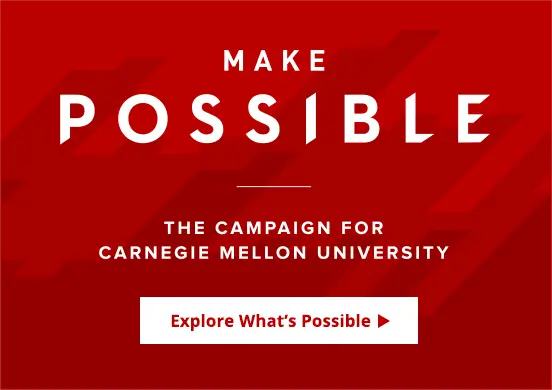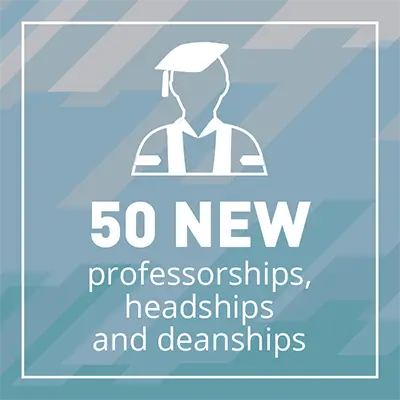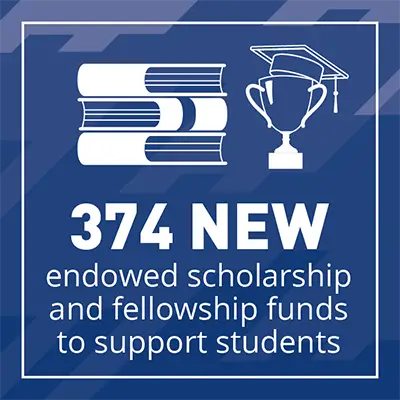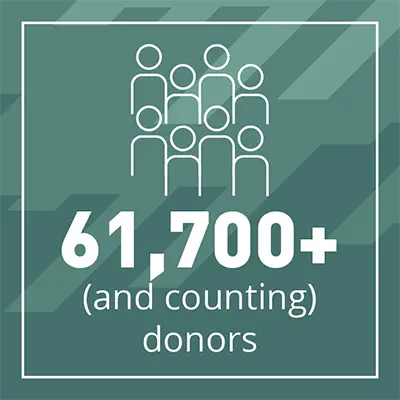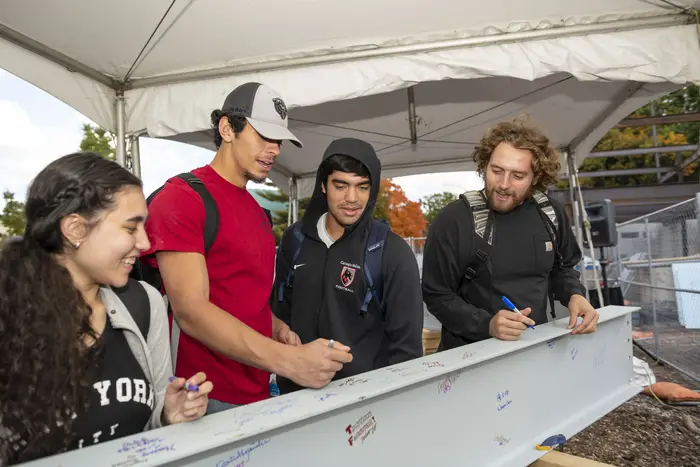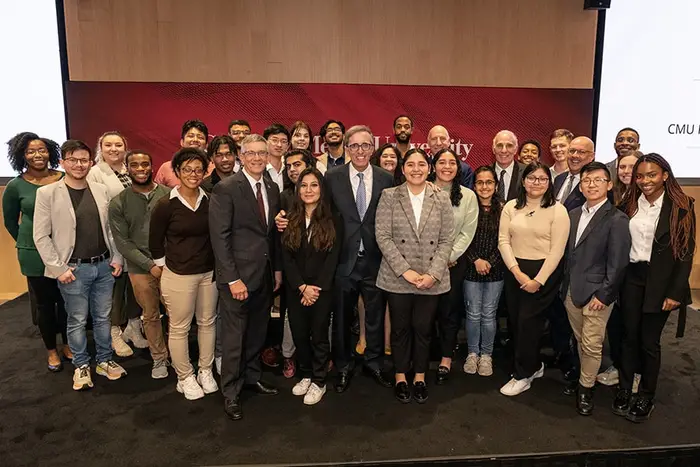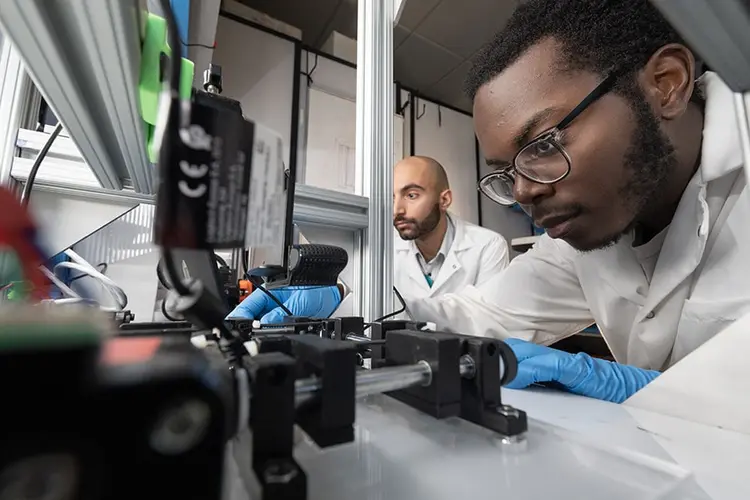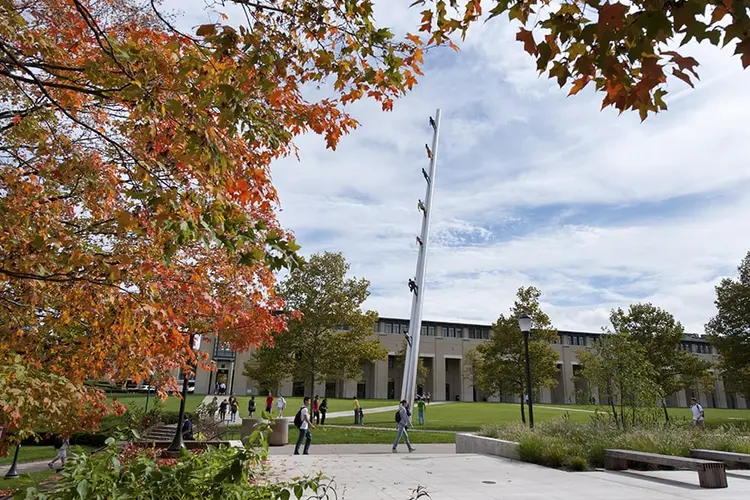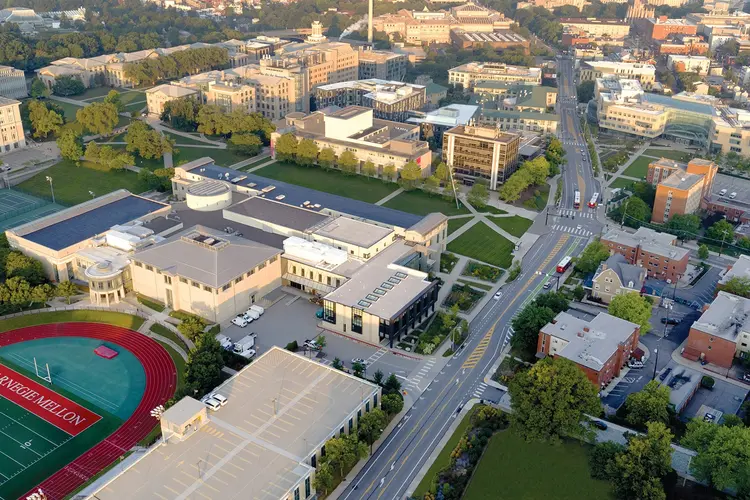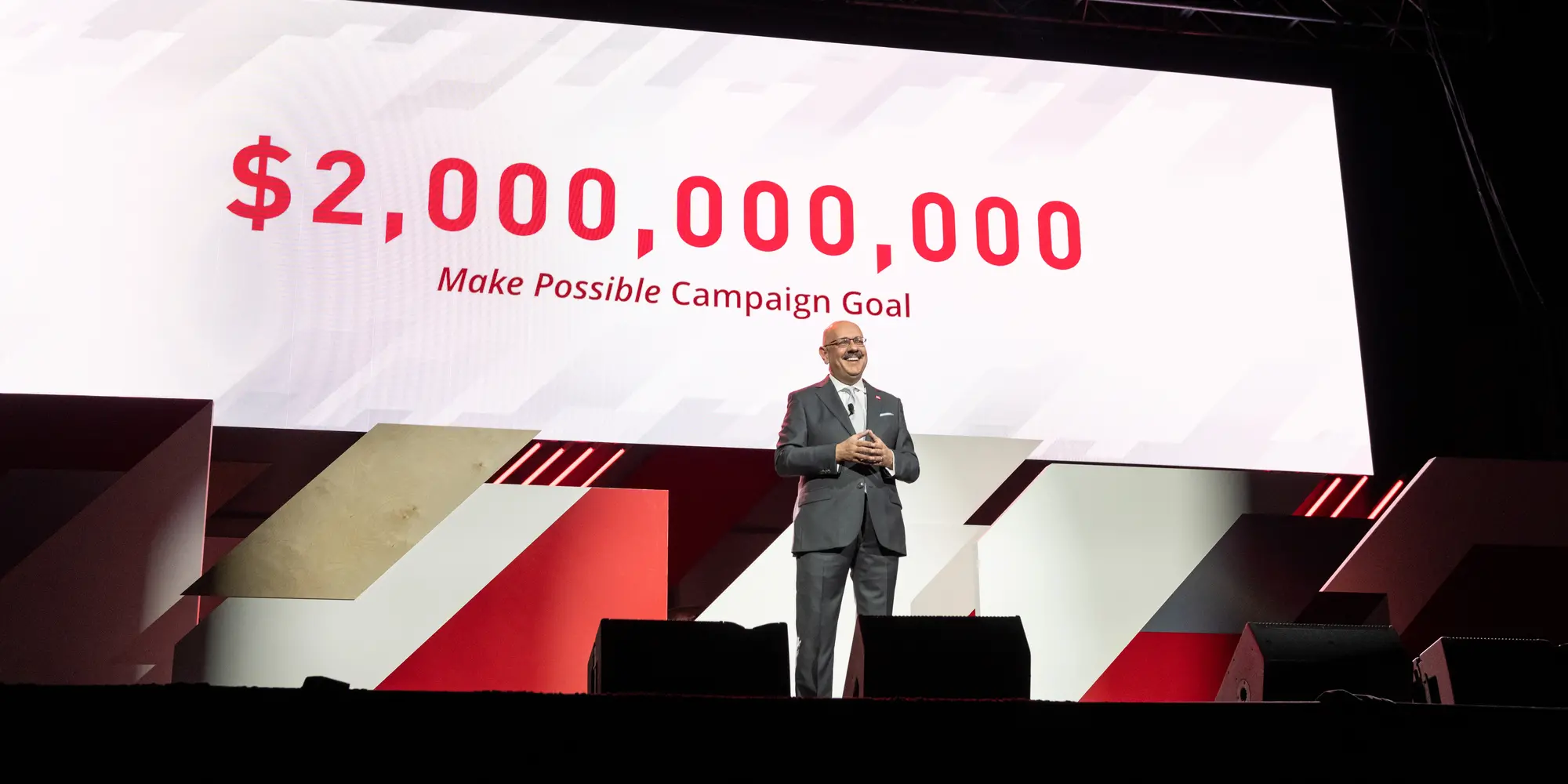
Carnegie Mellon Surpasses Initial Goal with Over $2B in Support for Ongoing Campaign
Make Possible to be extended by one year to continue momentum, complete major projects
Media Inquiries
Carnegie Mellon University today announced that it had surpassed its initial financial goal of $2 billion for its ongoing fundraising campaign — a significant milestone reached more than 18 months ahead of schedule. To date, supporters of Make Possible: The Campaign for Carnegie Mellon University have committed more than $2.13 billion to accelerate CMU’s mission and strategic priorities in education, research and societal impact.
CMU also revealed that the campaign would be extended by a year until June 30, 2025, to continue this impressive momentum and complete key capital projects and other initiatives, and to coincide with the anticipated 125th anniversary celebration of the founding of the university’s originating institution — the Carnegie Technical Schools — by Andrew Carnegie, whose original philanthropic gift established it.
“Carnegie Mellon was founded by an extraordinary act of philanthropy, and that spirit of giving is only stronger today as evidenced by supporters of our Make Possible campaign,” said President Farnam Jahanian. “While $2.13 billion — and counting — is a remarkable measure of the exceptional generosity of our community of supporters, even more important are the opportunities those gifts create for our research and education mission.”
The remarkable impact of donors to the campaign to date is felt across each of the university’s seven colleges and schools, as well as its libraries. Supporters have established more than 50 new endowed professorships, including three headships and four deanships (for the College of Engineering(opens in new window), Dietrich College of Humanities and Social Sciences(opens in new window), the Mellon College of Science(opens in new window) and University Libraries(opens in new window)).
Supporters also have answered the call to increase support for students and advance academic excellence, giving more than $400 million and establishing over 374 new endowed funds for scholarships and fellowships, as well as signature success programs like Tartan Scholars(opens in new window) and the CMU Rales Fellows Program(opens in new window) and the largest single gift to scholarships from alumni Tod and Cindy Johnson(opens in new window).
“CMU has made investing in our students and their experience a top priority,” said Gina Casalegno, vice president for Student Affairs and dean of students. “With our donors’ contributions to Make Possible, we are building cutting-edge facilities for health, wellness and athletics where we will have the resources needed to deliver critical programs to support our Tartans’ well-being and success. We are so grateful for their generosity.”
Campaign supporters also have made possible an incredible transformation of the Pittsburgh campus. Major projects such as Tepper Quad(opens in new window), TCS Hall(opens in new window) and ANSYS Hall(opens in new window) have opened in recent years, as well as the renovation of Hamburg Hall. Currently under construction are the Highmark Center for Health, Wellness and Athletics(opens in new window) and the new Scaife Hall for the College of Engineering(opens in new window), and planning is underway for the Robotics Innovation Center and the Richard King Mellon Hall of Sciences.
At the college level, philanthropy has established the Manufacturing Futures Institute(opens in new window) (College of Engineering), the Block Center for Technology and Society(opens in new window) (Heinz College of Information Systems and Public Policy), the Ballay Center for Design Fusion(opens in new window) (College of Fine Arts), the Center for Machine Learning and Health (School of Computer Science) and the PNC Center for Financial Services Innovation (Tepper School of Business).
“When we launched the campaign, we believed in the Tartan community and their enthusiasm to contribute to achieving our ambitious $2 billion goal,” said David Coulter, chair of both the CMU Board of Trustees and the Make Possible campaign. “That so many have stepped forward and helped us reach this milestone 18 months ahead of schedule — and during a global pandemic — is a powerful statement of support for the university’s vision of its future.”
In the past year, the university announced the largest gift ever received by CMU, from the Mastercard Foundation(opens in new window), which permanently endowed Carnegie Mellon University in Africa, enhanced fellowship support for the students who study there, deepened connections between the university’s Pittsburgh and Rwanda campuses, and strengthened the research, entrepreneurship and innovation ecosystem in and for Africa.
“Carnegie Mellon was founded by an extraordinary act of philanthropy, and that spirit of giving is only stronger today as evidenced by supporters of our Make Possible campaign.” — Farnam Jahanian
Numerous other gifts have created transformational impacts across the university, with an emphasis on student access and success. In February, CMU announced a $150 million initiative to increase access to STEM graduate education(opens in new window), made possible by a $116 million grant from the Norman and Ruth Rales Foundation. The CMU Rales Fellows Program will eliminate cost as a barrier to select master's degree and Ph.D. programs for students from under-resourced and underrepresented backgrounds. The Tartan Scholars program, launched in 2019, is also supporting students who are academically high achieving but come from under-resourced backgrounds. In 2021, the program was endowed through the generosity of the Posner Foundation of Pittsburgh(opens in new window).
In addition, a $150 million grant from the Richard King Mellon Foundation(opens in new window) will support the Robotics Innovation Center, the Manufacturing Futures Institute and the Richard King Mellon Hall of Sciences, and a cutting-edge sciences facility. The Hall of Sciences will include a new home for CMU’s Institute for Contemporary Art(opens in new window) thanks to a commitment from the Juliet Lea Hillman Simonds Foundation and the Henry L. Hillman Foundation. Among the many gifts that are driving forward research and discovery with real-world impact are a $30 million grant from the Heinz Endowments that has supported the creation of the Center for Shared Prosperity(opens in new window), and a $20 million gift from entrepreneur and blockchain pioneer Charles Hoskinson that established the Hoskinson Center for Formal Mathematics(opens in new window).
The university is especially proud that more than 61,000 members of the CMU community have made a gift to CMU during the campaign, including alumni, parents, friends, faculty and staff, corporate partners and foundations, and students. This represents a major expansion of CMU’s donor community at all levels of giving, including critical unrestricted annual gifts made to the university, to the colleges, and to departments and programs across the institution.
With the extension of the Make Possible campaign for an additional year, Carnegie Mellon will focus on raising philanthropic support for several priority initiatives. These include continuing to expand access to a life-changing CMU education through student scholarships and fellowships; enhancing the CMU experience, including through multiple capital projects underway; supporting faculty through endowed professorships and grants to support their research and creativity; and elevating significant initiatives within each college as well as University Libraries.
“Donor support has already helped us achieve so much, but we know there is still work to be done to make possible the goals and aspirations of our talented students, faculty and staff,” said Scott Mory, vice president for University Advancement. “Extending the campaign will help provide the foundation for CMU’s next century, and we look forward to celebrating with our community during the festivities in honor of the 125th anniversary of Carnegie Mellon’s founding.”
